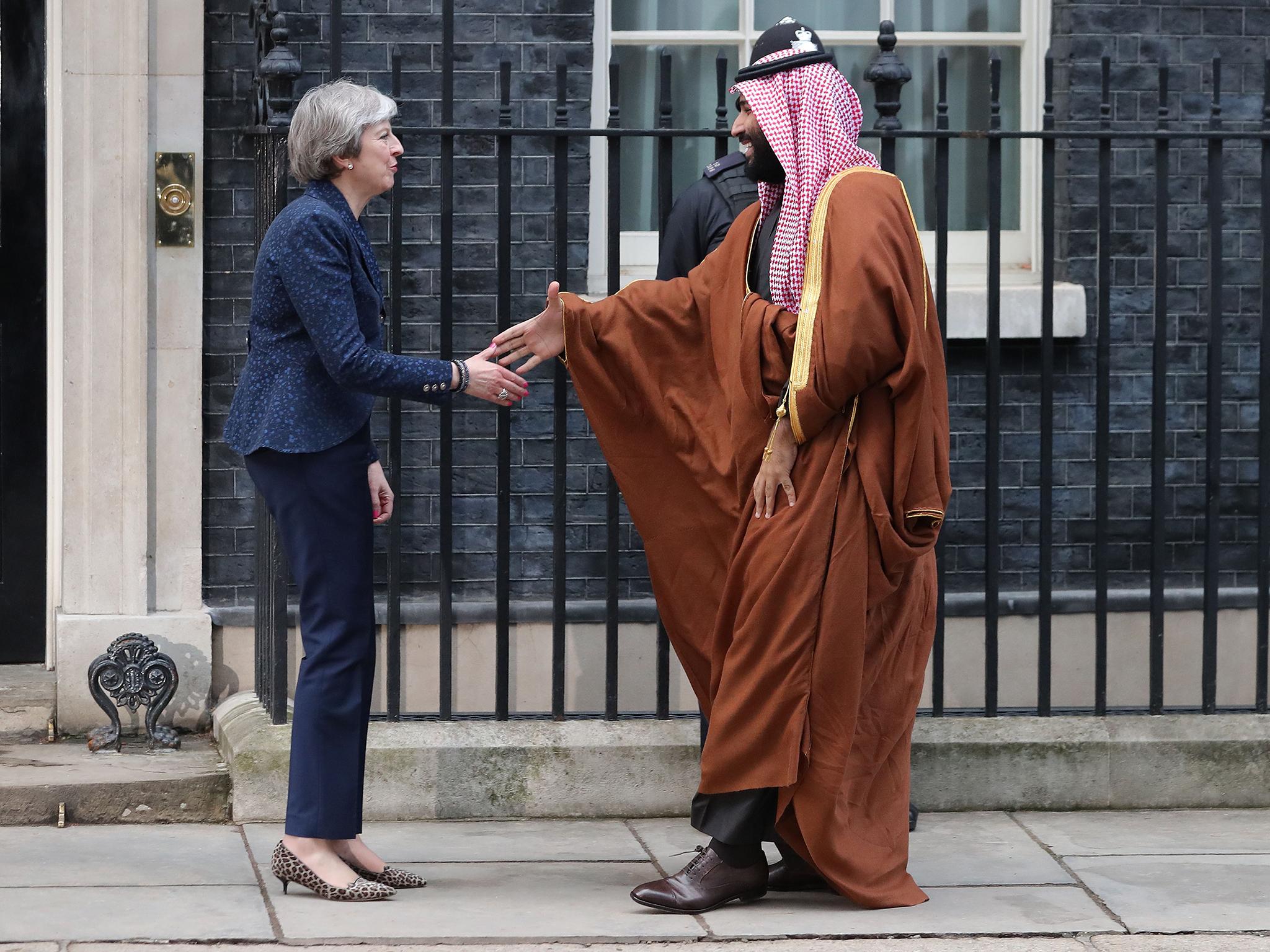Global indifference to human rights in Middle East driving repression and civilian suffering, warns Amnesty International
Virtually all human rights defenders in Saudi Arabia are now behind bars or have been forced to flee country, report says

Your support helps us to tell the story
From reproductive rights to climate change to Big Tech, The Independent is on the ground when the story is developing. Whether it's investigating the financials of Elon Musk's pro-Trump PAC or producing our latest documentary, 'The A Word', which shines a light on the American women fighting for reproductive rights, we know how important it is to parse out the facts from the messaging.
At such a critical moment in US history, we need reporters on the ground. Your donation allows us to keep sending journalists to speak to both sides of the story.
The Independent is trusted by Americans across the entire political spectrum. And unlike many other quality news outlets, we choose not to lock Americans out of our reporting and analysis with paywalls. We believe quality journalism should be available to everyone, paid for by those who can afford it.
Your support makes all the difference.The international community’s “chilling complacency” towards human rights abuses in the Middle East last year gave authorities “free rein” to crackdown on dissent, a new Amnesty International report has said.
In Saudi Arabia, Egypt and Iran, the repression of civil society and targeting of peaceful activists “intensified significantly” in 2018. These states were “emblematic” of the international community’s inadequate response to government abuses, according to the group’s annual report on human rights in the Middle East and North Africa region.
“Virtually all human rights defenders in Saudi Arabia are now behind bars or have been forced to flee the country,” Amnesty reported.
The report noted that whilst the case of Jamal Khashoggi’s murder was met with unprecedented global condemnation – spurring a Saudi Arabian investigation and prompting Germany, Denmark and Finland to suspend the supply of arms – the kingdom’s key allies did little in response.
“Even the global outcry over the Khashoggi case has not been followed by concrete action to ensure those responsible for his murder are brought to justice,” said Heba Morayef, regional director for the Middle East and North Africa at Amnesty International.
In contrast, the kingdom received worldwide praise for its lifting of the controversial ban on women driving in June, despite the large number of activists that were still in detention, including women who had previously protested against the ban.
Saudi Arabia’s involvement in the Yemen war was similarly met with widespread indifference, the report says.
“The USA, UK and France are among states that have continued to export weapons that have enabled the Saudi Arabia-led coalition to target civilians, schools and hospitals during the conflict in Yemen in violation of international law.”
In Iran, Amnesty designated 2018 as a “year of shame”, with more than 7,000 protesters, students, journalists, environmental activists, workers and human rights defenders arrested – many arbitrarily. Women protesting against the forced wearing of the hijab were amongst those targeted by authorities.
The country witnessed two major nationwide protests in January and then in July and August, with security forces targeting those demonstrating with live ammunition, teargas and water cannon, according to the NGO.
The European Union, however, which has an ongoing human rights dialogue with Tehran, “was muted” in its response.
In Egypt, authorities continued to crack down on opposition, intensifying efforts in the run-up to the presidential elections in March 2018, which saw dozens of people arrested.
Egypt is now “a more dangerous place for critics than at any other time in the country’s recent history”, the group found.
“The authorities used solitary confinement that amounted to torture and other ill-treatment and enforced disappearance against hundreds of people with impunity,” Amnesty International said.
Rights groups strongly criticised Egypt this month for executing nine men accused of the 2015 killing of the country’s chief prosecutor, citing concerns of unfair trials with confessions extracted under torture.
On Monday, Egyptian president Abdel Fattah el-Sisi defended the death penalty during a summit between Arab and European states, saying the two regions had “two different cultures”.
“The priority in Europe is achieving and maintaining wellbeing for its people. Our priority is preserving our countries and stopping them from collapse, destruction and ruin, as you see in many surrounding states,” he said.
Jean-Claude Juncker, European Commission president, said human rights had been raised in bilateral meetings during the two-day summit.
Amnesty International also expressed concern over President Sisi’s ratifying of two laws that awarded the state almost “total control” over print, online and broadcast media.
Despite these abuses, France and the US continue to supply Egypt with weapons used for internal repression, Amnesty said.
“Time and again allies of governments in the region have put lucrative business deals, security cooperation or billions of dollars’ worth of arms sales before human rights, fuelling abuses and creating a climate where [Middle East and North Africa] governments feel ‘untouchable’ and above the law,” said Philip Luther, research and advocacy director for the Middle East and North Africa at Amnesty International.
Join our commenting forum
Join thought-provoking conversations, follow other Independent readers and see their replies
Comments